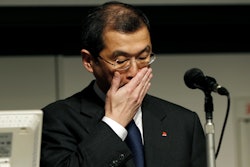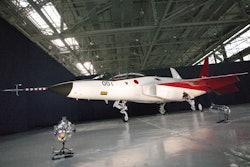UNDERWOOD, N.D. (AP) — Ye Yao, who filled a senior engineering job at Great River Energy's Coal Creek Station near Underwood, has a unique skill set.
His native Mandarin language positions him to help launch a piece of patented coal technology into a country that uses as much coal as the rest of the world combined.
That is China, where about 3 billion tons of coal are mined to provide 70 percent of the country's electricity. If coal is king here, it is an emperor in China, which has the equivalent of nearly 750 plants, each the size of one unit at Coal Creek Station. The country's new build out was the result of binge construction of two 600-megawatt plants a week for seven years straight.
Yao grew up in the shadow of a small power plant in the northeast province of Heilongjiang, and everyone, including his father, worked for the plant or made a living as a result of its existence. That has since been closed as China embarked on a monumental effort to construct massive coal-fired plants to get its population on a reliable electrical grid.
For Great River Energy, that equals huge potential to export its DryFining technology, a process that dewaters coal to make it burn hotter and cleaner. At Coal Creek, the unit removes about 25 percent of the water from lignite, increases plant efficiency by 4 percent and reduces sulfur dioxide, nitrogen oxide and carbon dioxide from the plant's emissions.
That unit is designated Serial No. 1. Yao's been assigned to a project with a partner company in China to build a mobile DryFining unit — Serial No. 2 — that plants there could add on to benefit coal burning. Lignite is about 38 percent water, while the harder bituminous coal in China is about 20 percent water.
At $258 million, the units aren't cheap to build, and it takes communication and engineering know-how to get the deal done.
"I help with the language barrier and solve the communication. I'm a same-country person, so they're maybe more open. There's no problem communicating," said Yao, adding he's corrected some earlier documents where the translation made some points "completely wrong."
He's been back to China twice for the DryFining project.
"It helps. I can talk to everybody, to the (partner engineering company) and the potential customers. I help both sides make sure we're on the same page," he told the Bismarck Tribune (https://bit.ly/1WMVPnp ).
At this point, the partner company is reviewing the unit engineering specifications before determining if it will build one.
Yao got the job at Great River in 2014 after completing an engineering graduate program at North Dakota State University. His timing was just right.
David Farnsworth, manager of power generation and engineering, said he met Yao while conducting a worldwide search for someone with the right skills to help Great River improve plant efficiencies as well as break into the Chinese market.
"In our visits with Yao, we learned that not only was he a bright and talented engineer ... based on where he grew up, he offered a unique ability to help with marketing DryFining in China," Farnsworth said.
Yao is the only child in his family, so the work trips are a valuable opportunity to visit his parents, too. He said it is not uncommon for children to move far from home — even within China — and a once-a-year visit is average.
Now, Washburn is home, and the weather and small-town atmosphere make it feel, if not his home in China, well within his comfort zone. People are friendly, helpful and receptive, he said.
"I'm the first one here from China, and my wife is the second," he said of Anna Liu, who joined him last year, and, after a life of dance study and performance, is immersed in the area Just For Kix dance program for youngsters.
The coal industry in China, as for Great River and coal everywhere in the world, is facing huge challenges to slow global warming. DryFining can play a role.
"I was looking at what kind of job do I want to use my abilities to help society," Yao said. "The environment is everybody's, and everybody has a responsibility."
___
Information from: Bismarck Tribune, https://bismarcktribune.com/






















